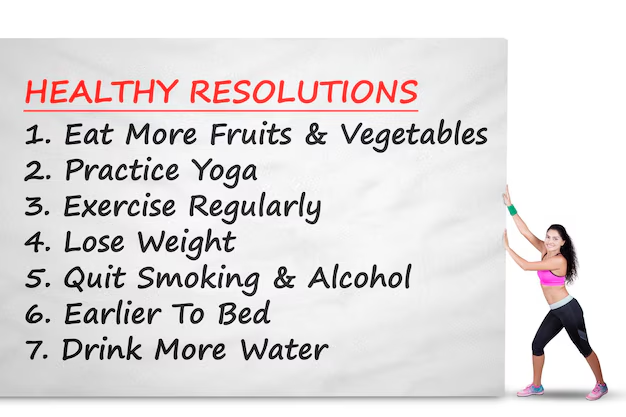
In today’s fast-paced world, maintaining a balanced and healthy lifestyle can seem like a daunting task. With the constant pressure to perform at our best—both at work and in our personal lives—it’s easy to neglect the three foundational pillars of well-being: fitness, nutrition, and mental wellness. The key to living a long, healthy, and fulfilled life lies in nurturing all aspects of your health. This blog will explore the best practices in fitness, nutrition, and mental wellness to help you achieve a harmonious balance and optimize your well-being.
1. Embrace Consistent Physical Activity
Physical fitness is essential for overall health, as it supports everything from cardiovascular health to mental clarity. Regular exercise reduces the risk of chronic diseases such as heart disease, diabetes, and obesity, while also promoting a strong immune system and improving sleep quality. However, the key to a sustainable fitness routine is consistency, not perfection.
Start by choosing activities you genuinely enjoy. This could be anything from running or cycling to yoga, swimming, or even dancing. It’s important to find a workout that feels fun and rewarding, as this will help you stay motivated over time. Aim for at least 150 minutes of moderate-intensity exercise per week, broken down into manageable sessions. A mix of cardio, strength training, and flexibility exercises will ensure that you engage all areas of your body for optimal fitness.
Additionally, make movement a part of your daily routine. If you work in an office, take the stairs instead of the elevator, or walk during your lunch break. Even small, consistent bouts of activity throughout the day add up and contribute to your long-term health.
2. Prioritize Balanced, Nutrient-Rich Foods
Proper nutrition is another cornerstone of good health. What you eat directly impacts your energy levels, immune system, and long-term health. A balanced diet provides the necessary nutrients your body needs to function efficiently and supports your fitness goals.
Focus on a whole-food, plant-based diet filled with a variety of fruits, vegetables, whole grains, lean proteins, and healthy fats. These foods are rich in vitamins, minerals, and antioxidants that help your body recover from workouts, improve digestion, and boost brain function. For example, leafy greens like spinach and kale are packed with iron, while berries provide antioxidants that fight free radicals and reduce inflammation.
Don’t forget to hydrate! Drinking water throughout the day is essential for keeping your energy levels up, aiding digestion, and supporting overall bodily functions. Aim to drink at least 8 cups (64 ounces) of water daily, and more if you are physically active.
While focusing on whole, nutritious foods, it’s also important to practice mindful eating. Slow down, listen to your body’s hunger cues, and pay attention to how different foods make you feel. This practice helps prevent overeating and ensures that you are truly nourishing your body.
3. Cultivate Mental Wellness
Mental wellness is just as important as physical health. Mental well-being influences how we cope with stress, make decisions, and relate to others. A focus on mental health practices can enhance emotional resilience, increase productivity, and foster a more positive outlook on life.
One of the best ways to nurture mental wellness is through stress management. Chronic stress can lead to burnout, anxiety, and physical health issues, so it’s crucial to find effective ways to relax and unwind. Practices like meditation, deep breathing exercises, and mindfulness can reduce stress by calming the nervous system and helping you stay present in the moment.
Physical activity also plays a significant role in mental health. Exercise stimulates the release of endorphins, the body’s natural “feel-good” hormones, which help improve mood and combat anxiety and depression. Engaging in activities you love, whether it’s exercising, spending time with loved ones, or practicing a hobby, is essential for maintaining mental balance.
Additionally, make sure to prioritize self-care. Taking time for yourself, setting boundaries, and engaging in activities that bring you joy are important for maintaining a healthy mental state. If you’re struggling with mental health challenges, seeking professional support, such as therapy or counseling, can provide valuable tools for navigating difficult emotions.
4. The Power of Rest and Recovery
One aspect of health that is often overlooked is rest and recovery. Rest is essential for both physical and mental well-being. Adequate sleep is a critical part of the recovery process, allowing your body to repair muscles, replenish energy, and reset for the day ahead.
Aim for 7-9 hours of quality sleep per night. Creating a sleep-friendly environment by keeping your room dark, cool, and quiet can help improve sleep quality. Also, avoid caffeine and heavy meals before bedtime, and consider establishing a relaxing nighttime routine to signal to your body that it’s time to wind down.
Rest days are equally important in a fitness routine. Giving your body time to recover allows muscles to repair, reducing the risk of injury and preventing burnout. On rest days, consider engaging in low-impact activities like stretching or yoga to maintain flexibility and support recovery.
5. Consistency Is Key
While achieving optimal fitness, nutrition, and mental wellness may seem like a complex puzzle, the truth is that consistency is what leads to lasting success. Rather than seeking quick fixes or extreme changes, focus on developing small, sustainable habits that support your overall health. Gradually integrate fitness routines, balanced meals, and mental wellness practices into your daily life, and over time, these actions will become second nature.
It’s important to be kind to yourself throughout this process. Progress in health is not always linear, and setbacks are a natural part of the journey. Embrace the process, celebrate small victories, and keep moving forward toward your health and wellness goals.
Conclusion
The best health practices are those that encompass the mind, body, and spirit. By prioritizing fitness, balanced nutrition, and mental wellness, you are setting yourself up for a lifetime of vitality and well-being. Incorporate these practices into your daily life, stay consistent, and remember that true health is a journey—not a destination. With dedication and patience, you can transform your health and lead a more balanced, fulfilling life.












